Leap Day:
- Learn about how long it takes the Earth to go round the sun
- Play leapfrog
- Make a leap day time capsule to open next leap day
Leap Day:

1786 Wilhelm Grimm born – so study some Grimms fairy tales; here’s a Pinterest page of activities and here are some games. The best thing to do, though, is try and re-enact a Grimms fairy tale with your dolls. Video it too!
Dragobete (Romanian Valentine’s Day, celebrating the day the birds are said to find their mates and start building nests)
Mexico Flag Day – see 16th September
Estonia Independence Day – see 23rd June
Thailand National Artist Day – see 5th December
1455 Gutenberg Bible first printed with moveable type – so print some letters

1633 Samuel Pepys born – so start a diary
1685 Handel born – his most famous works are Messiah, and Music for the Royal Fireworks
Why not listen to his Water Music while doing water experiments?
Brunei National Day:
Brunei comes from ‘Baru nah!’, meaning ‘It’s there!’, which the founder shouted when he saw it.
There isn’t much known about it before Europe discovered it, but it seemed to have been owned by the Indonesian empire of Majapahit, and was Islamic.
Spain invaded in 1578, but the sailors caught cholera and left again.
In 1846 Brunei was having a little conflict over who should be Sultan, and Britain thought ‘Yeah that’s totally our business’ and attacked, but we didn’t take Brunei for ourselves.
In the 1880s the Sultan granted land to the British adventurer James Brooke, who founded Sarawak and became the first White Rajah. He and his heirs took more land and Brunei grew smaller.
In 1888 the Sultan asked to become a British Protectorate to stop the White Rajahs taking more land. Britain signed a treaty with them then totally didn’t help them, and Brunei carried on getting smaller until it was just the two little chunks it is today. What Britain did do was send in ‘advisers’ (or, ‘colonists’).
From 1929 Brunei found its river Seria to be a valuable source of oil.
In WWII Japan took Brunei and Britain didn’t help cos we were busy. Australian and American forces bombed Brunei until the Japanese surrendered in 1945.
After WWII a British Military Administration helped revive the economy and put out the oil well fires started by the Japanese as they left.
Brunei gained independence from the UK in 1984.
Tłusty Czwartek, Poland’s Fat Thursday – the last Thursday before Lent – there are a lot of pączki in Bognor Regis: sugar-dusted, iced, sprinkled with dried orange zest, with fillings of thick vanilla creme, strawberry jam, apple compote.
Other events that might inspire your play today:
1997 Dolly the sheep’s clone announced – so learn about genes and DNA:
1857 Robert Baden-Powell (founder of Scouts) born – Baden-Powell Day
1889 Girl Guide founder Olave Baden-Powell born – World Thinking Day (Girl Guides)
… so go camping!

http://www.telegraph.co.uk/travel/festivalsandevents/8161704/Book-now-short-break-holiday-ideas.html
Sun Festival, Abu Simbel – Ramses II built this temple so that the inner chamber would light up twice a year: once on the anniversary of his ascension to the throne (today), and once on his birthday (22nd October).
St Lucia Independence Day
George Washington’s Birthday – the first president of the United States. Try this website.
1842 the sewing machine patented – try these easy sewing activities with your little one:
Other events that might inspire your play today:

1472 Nicholas Copernicus born – so learn about the solar system:
We made an orrery!
As you can see, it’s made from a nail pushed through the hole in a cake stand.
A tealight represents the sun and the planets are in order on craft wire. They can move around the ‘sun’ as they are hooked into the grooves on the nail.
The planets are made from Fimo and rest on buttons so they don’t slide down the wire.
I think the best thing is that the planets can be taken off, so you can remind your little one of the order of the planets.
We watched this song on repeat while we were making it.
Make planets out of Playdough (which can be cooked hard) or Fimo and make jewellery … or make solar system cake pops:

I also like this solar system fruit and yoghurt snack:

I love this way of showing orbits by tying a kid to a weight so they see how they are pulled around it at Our Montessori Home:

LOOK AT THESE SOLAR SYSTEM CHOCOLATES:
I also love ‘What if the other planets were as close as the Moon?”
1819 South Shetland Islands discovered in Antarctica

1878 Eddison patents the phonograph
Turkmenistan National Flag Day
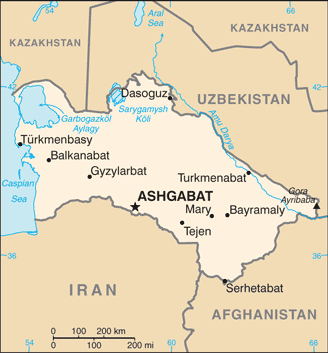
In the 8th century Turkic-speaking Oghuz tribes from Mongolia came to the area that is now Turkmenistan. In the 10th century they accepted Islam under the rule of the Seljuk Empire, which covered Iran, Turkmenistan and later Azerbaijan and eastern Turkey.
In the 12th century Turkmen tribes overthrew the Seljuk Empire. In the next century, an influx of Mongols drove the Turkmen south. They remained as nomadic, independent tribes, but were eventually kind of controlled by Uzbek khanates (chiefs/kings).
In the late 19th century Russia took over the Uzbek khanates and in 1881, at the Battle of Geok Tepe, Russia annexed the whole of Turkmenistan.
The Turkmens rebelled against Russian conscription in WWI, and joined Kazakhs, Kyrgyz, and Uzbeks in the Basmachi Rebellion against Soviet rule in the 1920s. Nevertheless Turkmenistan and part of Kazakhstan became the Turkmen Soviet Socialist Republic, and agricultural reforms destroyed the Turkmen nomadic lifestyle.
In 1991 when Soviet Russa collapsed, Turkmenistan gained independence and the communist leader Saparmurad Niyazov decided he would be president for life.
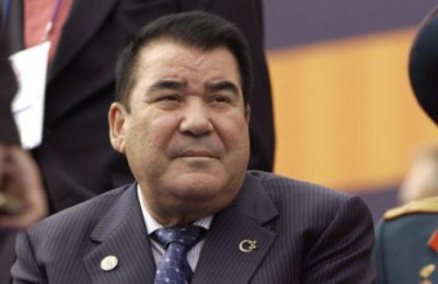
He did things like, close all hospitals and libraries outside the capital. In 1995 he declared Turkmenistan permanently neutral, meaning they will never take sides in someone else’s war, which I think might be wonderful.
Niyazov died in 2006, and his deputy won the elections, which was made entirely of the ‘Democratic Party’s candidates.
There’s a 60% unemployment rate but although Niyazov made Turkmenistan one of the top 10 most censored countries in the world, it is also the world’s fourth largest exporter of gas and he does spent the money on renovating the cities, and gives everyone 120 free litres of petrol a month, as well as free/subsidised electricity, water, gas and salt. It’s also the world’s 9th largest producer of cotton. But it doesn’t do much else.
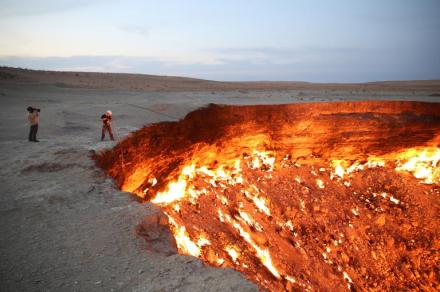
Turkmenistan is where the famous Door to Hell is, a gas field with an enormous crater that appeared in 1971 when the ground beneath a drilling rig collapsed. The Soviet engineers decided to burn off the gas coming out of the hole in case it was poisonous. It was supposed to burn out after a few weeks. It’s still burning.
1930 Pluto discovered – it’s smaller than our moon, takes 248 years to orbit the sun, it’s mostly ice and has no atmosphere, and might be one of Neptune’s moons that escaped (its orbit goes inside Neptune’s)
1978 the first Iron Man competition held – a 2.4-mile swim, a 112-mile bicycle ride and a marathon 26.2-mile run in 17 hours.
1848 Louis Comfort Tiffany, glass artist, born – so try some stained glass:

This one uses tissue paper and glue – another blog used puffy paint to make the black stained-glass outlines.
Gambia Independence Day
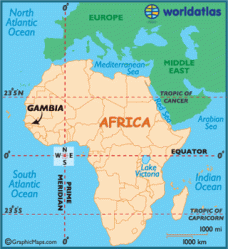
Gambia used to trade with Muslim merchants in slaves, ivory and gold on the trans-Saharan trade routes. By the 12th century Gambian kingdoms had converted to Islam and had courtiers literate in Arabic.
In the 14th century Gambia was part of the Mali Empire. In the mid-15th century the Portuguese arrived and dominated sea-trade. In 1588 the Portuguese sold trading rights on the Gambia river to Britain.
During the 17th and 18th centuries Britain and France were fighting over West Africa, but Britain eventually won Gambia. In 1807 we abolished slave trade in our empire.
Gambia gained independence within the Commonwealth in 1965.They did quite well with democracy until 1981 when there was a coup and about 800 people died, Gambia tried joining up with Senegal to share resources but gave up after seven years. In 1994 Lt. Yahyah Jammeh became dictator and banned opposition parties, but since then they’ve moved back to democracy and Jammeh is still in power. In 2013 Gambia left the Commonwealth because it’s a neo-colonial institution.
Their traditional music is sabar; they love football.
Other events that might inspire you today:

1904 Puccini’s Madama Butterfly premieres in Madrid
Kosovo Independence Day (see 15 February)
Hachinohe Emburi (Japan) – in the hope of a successful rice harvest, Japanese farmers put on horse hats and do a dance.
Quirinalia (Rome)
Maha Shivaartri (2015 – Hindus celebrate the God Shiva)
1923 Howard Carter unseals Tutankhamen’s tomb – these children did some great Ancient Egypt activities!
We chose a teddy bear to be mummified. First we checked teddy with Baby’s doctor’s kit (“What would you use to find out whether he’s alive or dead?” – “Listen to his heartbeat!”).
Then we made a Playdo liver, lungs, heart, intestines and stomach and arranged them on the teddy.
Then we used the remaining pots of Playdo to make the canopic jars, moulding Playdo heads onto the lids of each Playdo pot.
The jackal keeps the stomach, the falcon keeps the lower intestines, the human-headed god keeps the liver, and the baboon keeps the lungs.
After we’d removed the organs except the heart, and mimed scooping out teddy’s brains through his nose, we wrapped teddy in toilet tissue and then made him a sarcophagus out of a paper bag (you could use a cardboard box too), decorating an Egyptian teddy death mask on it with blue and gold pens.
This was a great history and biology lesson combined!
2005 Kyoto Protocol comes into effect, trying to reduce emissions and man-made climate change. Here’s a website for kids on climate change; or try an experiment about water pollution.
Kim Jong-il’s Birthday (see 27 December)
Lithuania Restoration of the State Day (1918) – see 11th March.
St Louis, Missouri, established 1764 – so make ice cream in cones…
Too cold? Try ice cream cone cakes:
… or make iced tea:
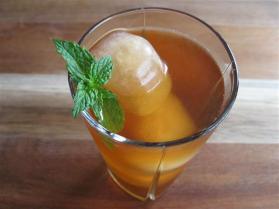
… drink 7 Up or make a 7-Up cake:
… watch the Judy Garland movie Meet Me in St Louis:
1971 Decimal Day (Britain changes its money to the decimal system) – so empty your wallet and play shop with real money. There are online games here.
2001 first draft of the complete human genome published in Nature – this blog has some great DNA activities:
Galileo born 1564 – so build a telescope, or visit your local observatory, or do his Leaning Tower of Pisa experiment and drop a heavy and a light object out of a window to see which lands first (hopefully they land at the same time!)
Charles Lewis Tiffany born 1812, founder of Tiffany’s – so make newspaper jewellery;
1874 Sir Earnest Shackleton, Antarctic explorer, born – so go exploring!
Serbia National Day:
Neolithic humans were settled in Serbia 8,500 years ago.
In the Iron Age the Thracians, Dacians and Illyrians developed there, and the Ancient Greeks expanded into south Serbia in the 4th century B.C.
A Celtic tribe of Scordisi invaded, then the Roman Empire in the 2nd century B.C.
17 Roman emperors were born in Serbia, including Constantine the Great.
When the Roman Empire was divided, Serbia remained in the Byzantine Empire.
In the 8th century the Principality of Serbia was ruled by the Vlastimirović Dynasty and adopted Christianity.
The Byzantine Empire annexed it, then it devolved into a Vojislavljević dynasty in Duklja, and the Vukanović dynasty in Rascia called the Serbian Grand Principality.

These two halves were united in 1142, and Stefan Nemanja assumed the throne.
His son, Rastko created the Serbian Church and wrote the world’s oldest known constitution.

Dušan the Mighty doubled the size of Serbia by taking land from Byzantium and becoming Emperor of Serbs and Greeks.
But by 1455 Serbia was completely conquered by the Ottoman and Hapsburg (Austro-Hungarian) Empires.
In the 18th century the word ‘vampire’ began to spread – the most widely used Serbian word in the world. The picture shows a sign in Serbia directing tourists to a mill haunted by a vampire.
In the Russo-Turkish War Serbia tried to gain independence from the Ottoman Empire, and it did, briefly, before the Great Powers decided it was now owned by Austria-Hungary. Ho-hum.
In 1912 the two Balkan Wars defeated the Ottoman Empire and increased Serbia’s land by 80%.

In 1914 Serbian Gavrilo Princip assassinated the Austrian Archduke Franz Ferdinand in Sarajevo, Bosnia-Herzegovina, and kicked off WWI.
At the end of the war, King Peter I of Serbia became King of Serbs, Croats and Slovenes. His son renamed the country Yugoslavia (meaning ‘southern Slavs’), but the Croats eventually became independent again.
In WWII Yugoslavia tried to stay neutral but the Axis powers (the bad guys) invaded, and 90% of Serbia’s Jews were killed.
Yugoslavia was also having a civil war, royalists against communists; 70,000 Serbs were killed in this inner war alone. The communists won.
In 1989 Slobodan Milošević came to power and Yugoslavia broke up, with only Serbia and Montenegro staying in. But ethnic Serbs living in Bosnia and Croatia were cross about not being part of Yugoslavia anymore, so wars broke out.
Serbia supported the ethnic Serbs until the UN imposed sanctions on them and so Serbia’s economy crashed.
In 1990 they were finally allowed democracy, although Milošević didn’t actually concede defeat in elections until 2000 (after NATO bombed Serbia to stop all the fighting in Kosovo).
When he fell, the UN lifted its sanctions and Milošević was sent off to a war crimes court, but died of a heart attack before any judgement.
In 2006 Montenegro separated from Serbia, and in 2008 Kosovo decided it was independent too. Serbia said nope.
Serbia is currently waiting to join the EU.

Serbia is the world’s second-largest plum exporter (after China) and the plum is its national fruit. Try making plum dumplings.
Listen to Stevan Stojanović Mokranjac’s music, Željko Joksimović or Boban Marković, or watch a kolo dance.
A special part of Serbian culture is the Slava, when Serbians celebrate their family’s patron saint’s day with Slava bread, red wine, and a bowl of boiled wheat.
Other events today that might inspire your play: